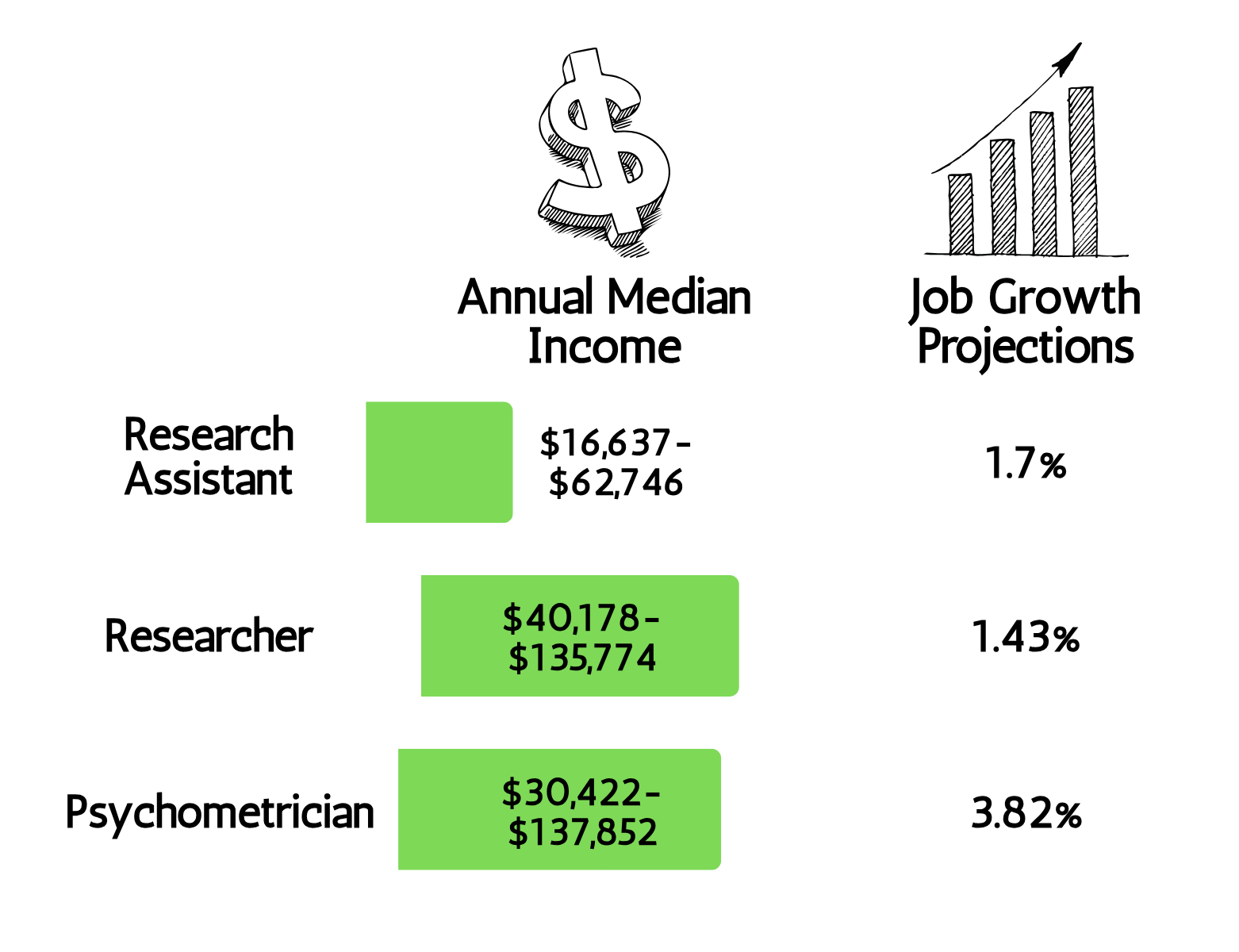Research Careers in Behavioral Health:
Discover, Learn, and Make a Difference
Is Working in Behavioral Health Research for You?
Learn More About Research Careers:
American Psychological Association (APA)
Learn how to become a psychometrician
Learn how to become a research psychologist
Certified Clinical Research Professional (CCRP)
US Bureau of Labor Statistics
Social Science Research Assistants (Career OneStop)
Clinical Research Coordinators (Career OneStop)
Do you love asking questions, solving problems, and looking for ways to help people? Behavioral health researchers study how to improve mental health and addiction treatment. If you're curious, detail-oriented, and want to make an impact behind the scenes, this career path could be a perfect fit for you!
*Please note that the job recommendations listed throughout this page will vary by agency and county, as some may require additional training or licensure.
Your Path to a Career in RESEARCH
What does it take?
Get Educated
Get Experience
Get Ahead
Income varies and is based on role, location, experience, education, and licensing/credentials. Job growth projections are for 2023-2033. Ohio LMI
Salary ranges are based on what’s currently available through Zip Recruiter, Indeed, Career One Stop, or Salary Expert.

Get more info in the FAQs
RESEARCH PROFESSIONALS - FAQ
-
You enjoy asking big questions and finding answers.
You like working with data, technology, or science.
You want to help improve mental health care for others.
You prefer behind-the-scenes work that makes a big impact.
You like working with a team and solving problems.
Research is a powerful way to help people by discovering what works—and what doesn’t—in behavioral health.
-
With a bachelor's degree or higher:
Research Assistant
Research assistants help collect and organize information for studies about mental health and behavior. They might collect data, organize information, and support studies led by professionals. They might interview people, enter data into computers, or help run surveys. Their work helps find better ways to treat and support people in need.
With a master's degree or higher:
Researcher
Researchers in behavioral health are like detectives for the mind. They study how people think, feel, and act to understand what helps or hurts mental health. They search for patterns, ask big questions, and test new ideas to improve care. Their discoveries can lead to better treatments, new programs, and stronger support for individuals, families, and communities.
With a doctoral degree:
Psychometrician
Psychometricians are experts in designing brain and behavior tests. They create and study tools that measure things like mood, memory, learning, and how people behave. Their job is to make sure these tests are fair, reliable, and actually work. The results help mental health professionals better understand what someone is going through, make a diagnosis, or track how well treatment is working.
Other job titles you may see:
Data Analyst
Clinical Research Coordinator
Behavioral Scientist
Principal Investigator
There are many ways to grow in this field—from supporting research to leading your own projects!
-
Design studies to test treatments or programs.
Collect information through interviews, surveys, or records.
Analyze data to find patterns or results.
Write reports and share discoveries with other professionals.
Help shape better services for mental health and substance use care.
Researchers use science to understand people’s needs and improve behavioral health care.
-
Universities and colleges
Hospitals and health systems
Government agencies
Mental health centers
Nonprofit organizations
Private research firms
Behavioral health researchers work in many places where science and care come together.
-
People with Mental Health Substance Use Disorders: Studying what treatments support long-term success.
Families and Communities: Exploring programs that support youth, schools, or underserved areas.
Health Professionals and Policymakers: Providing data to improve services and systems.
Researchers may not work directly with clients, but their work helps improve care for entire communities.
-
Bachelor's degree: Start as a research assistant or data technician (often in psychology, sociology, or public health).
Master's degree: Qualify for more advanced research roles and data analysis positions.
Doctoral degree (Ph.D. or Psy.D.): Required to lead research, teach at colleges, or run your own projects.
Disclaimer: The information provided on this website is accurate to the best of our knowledge at the time of publication. If you notice any errors or outdated information, please contact accounts@mhaadvocacy.org so we can make the necessary corrections.


